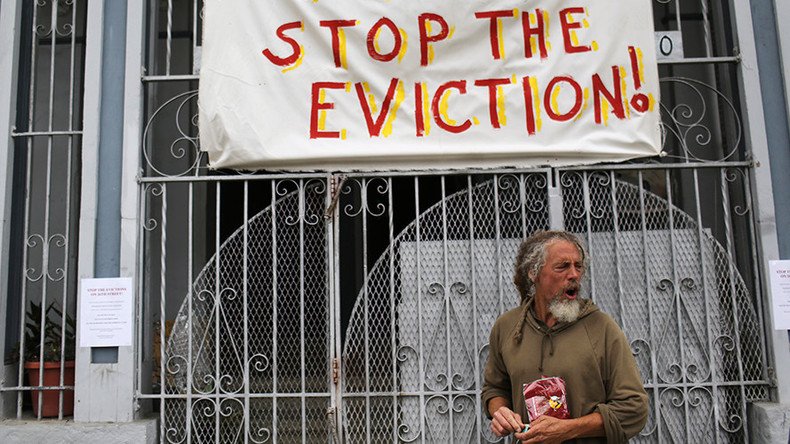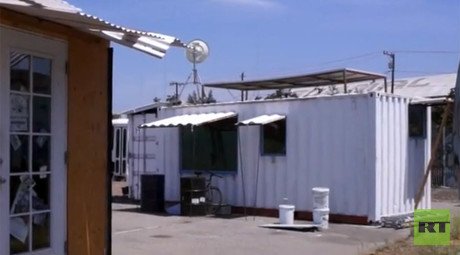American Dream dead in San Francisco? Just 13% of households can afford it

The idyllic dream of owning a house is near dead and gone in San Francisco, where only 13 percent of households can afford the cost of housing. The divide between wealthy tech companies and locals seems to be amplified by increasing housing costs.
A report by Paragon Realty found that San Francisco is quickly becoming a city exclusively for the affluent. With a median-priced home costing $6,740 a month, it’s easy to imagine how few can afford their own Golden City home.
The report also found that in order to qualify to purchase a home in San Francisco, a family has to make $269,000 annually – five times higher than the real median household income of $53,657, according to the US Bureau of Census.
Living farther away does little to cease the housing costs. The median qualifying income to purchase homes in the US is $47,200, according to the report. However, the cheapest county in the San Francisco area is Solano, where the median price is still $75,700. For families that work in San Francisco, that would require about a 60-mile commute.
Rentals aren’t any better. The average two-bedroom in San Francisco costs $4,756 per month, according to Rent Jungle. The general rule of thumb is that rental costs should cost no more than one-third of your total budget, meaning that affording a two-bedroom apartment in the city by the bay calls for a monthly income of $14,268 and an annual budget of $171,216 per household. The average median income is one-third of this.
The report touched on this, saying: “The affordability challenges for renters (unless ameliorated by rent control or subsidized rates) has probably been even greater than that for buyers, since renters don’t benefit from any significant tax benefits, from the extremely low, long-term interest rates, or by home-price appreciation trends increasing the value of their homes (and their net worth),” adding, “In fact, housing-price appreciation usually only increases rents without any corresponding financial advantage to the tenant.”
The housing crisis in San Francisco has been ongoing for quite some time, causing tensions between long-term residents and the newly affluent tech companies that have flocked to the city and flooded the market with high income residents.
All of this comes on the heels of the Department of Housing and Urban Development’s rejection of San Francisco’s plans to keep minority residents in the city. Despite the San Francisco Board of Supervisors passing a neighborhood preference plan developed to prevent driving out African-American and minority community members, the Housing of Urban Development (HUD) claimed the plan would “limit equal access to housing and perpetuate segregation,” the San Francisco Chronicle reported.
The plan would have set aside 50 percent of new subsidized housing units for people already living in the district where the development is built or within a half mile of the project.
This is bad news for elderly residents of the West Addition neighborhood, where a $15.2 million senior housing development was financed by the HUD.
Board of Supervisors President London Breed is a native to the neighborhood who had worked with residents to help increase their chances of getting into the new building. She told the Chronicle, “These are seniors sleeping on friends’ couches, staying with their kids, living in [residential] hotels. This community has been falsely promised so much. With the neighborhood preference they thought they would have a real shot.”














